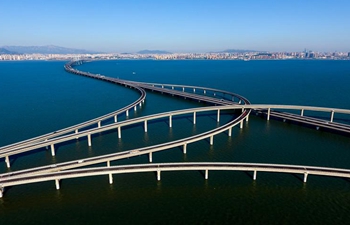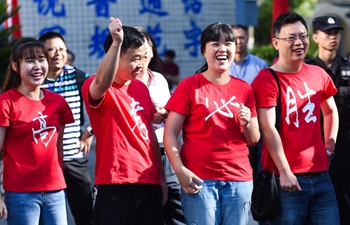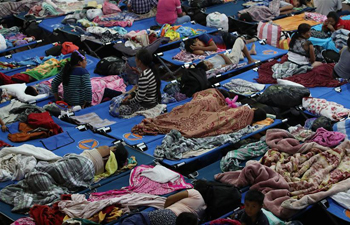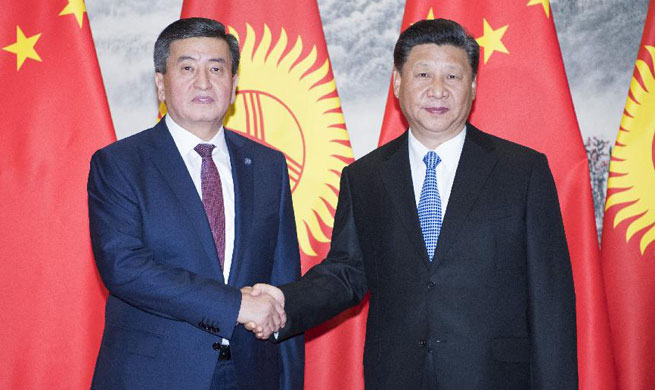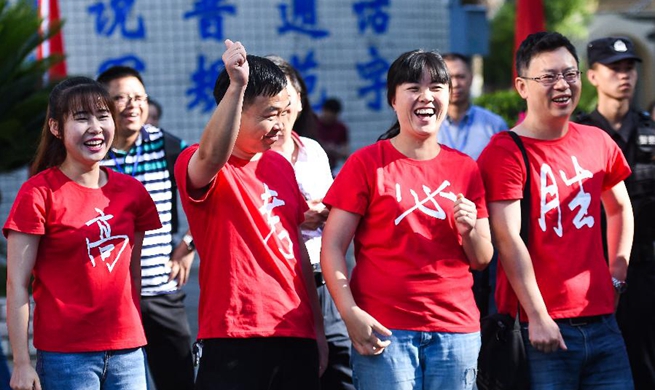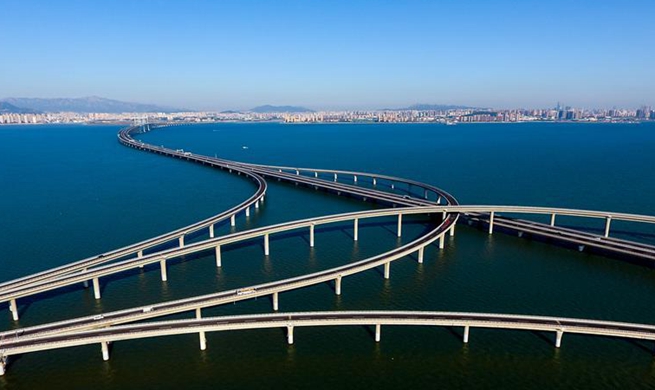by Xinhua writers Shen Zhonghao, Qiao Jihong, Shuai Rong
BRUSSELS, June 7 (Xinhua) -- China and the European Union (EU) have both voiced their firm objections to U.S. tariffs on steel and aluminum, and are expected to collaborate more closely to uphold multilateralism and free trade.
Despite worldwide opposition, U.S. President Donald Trump announced in March a 25-percent tariff on imported steel and a 10-percent tariff on aluminum. The administration had given temporary exemptions for EU member states, Canada and Mexico until June 1.
Shortly after the end of the exemption, the EU initiated a dispute with the United States at the WTO, and announced Wednesday the start of applying rebalancing duties on U.S. products in July, as part of the "three-pronged response."
In late April, the EU had sought to join the consultations at the WTO requested by China with the United States on the U.S. tariffs, saying that it has substantial trade interests in the matter.
In a statement, European Commission President Jean-Claude Juncker lambasted U.S. tariffs, saying that "this is protectionism, pure and simple."
"We regret that the United States left us with no other option than to safeguard EU interests," EU Trade Commissioner Cecilia Malmstrom said.
Meanwhile, China's Foreign Ministry spokesperson Hua Chunying said earlier that unilateralism and trade protectionism are harmful and offer no benefits in a deeply integrated global economy.
China has decided to slash its automobile import tariffs from July 1, as part of its opening-up efforts aimed at strengthening a rule-based and multilateral global trade system. The world's second largest economy has also announced an increase imports from other countries.
Gabriel Felbermayer, a trade expert at the Ifo institute in Munich, said while economic damage from the steel and aluminium tariffs would be "limited" at first, they would be "only the beginning of a row of further U.S. measures."
Felbermayer suggested the EU maintain a united front in opposition to the measures together with other international partners like China, which is interested in upholding a multilateral system based on fair trade.
Last week, top diplomats of the two sides already pledged to deepen strategic cooperation and safeguard multilateralism, as Chinese State Councilor and Foreign Minister Wang Yi and EU foreign policy chief Federica Mogherini co-chaired the eighth round of the China-EU high-level strategic dialogue in Brussels.
Noting that unilateralism and protectionism are on the rise, Wang said China and the EU should closely cooperate to combat any threat to free trade.
Mogherini, for her part, said that the EU is willing to work with China to uphold the multilateral system with the United Nations at the core, and a rules-based international order.
As Trump's protectionism creates more chaos and uncertainties worldwide, more resilience and perseverance is badly needed for an open and fair trade system. In this regard, China and EU, which share substantially the same view on preserving multilateralism, globalization and free trade, have tremendous potential in the cooperation to tackle protectionism.
In response to its unilateral measures, other trading partners of the United States are also joining the fight. Last week, Canada filed a challenge at the WTO against the U.S. tariffs on steel and aluminum hours after EU and announced retaliatory tariffs. Mexico responded with similar measures on Tuesday, targeting the American steel, aluminum and agricultural sectors.
As the international situation is undergoing complicated and profound changes, safeguarding multilateralism and free trade is not only at stake for the EU and China, but also for the rest of the world, said Juncker.
(Xinhua reporter Tian Dongdong also contributed to the story.)




